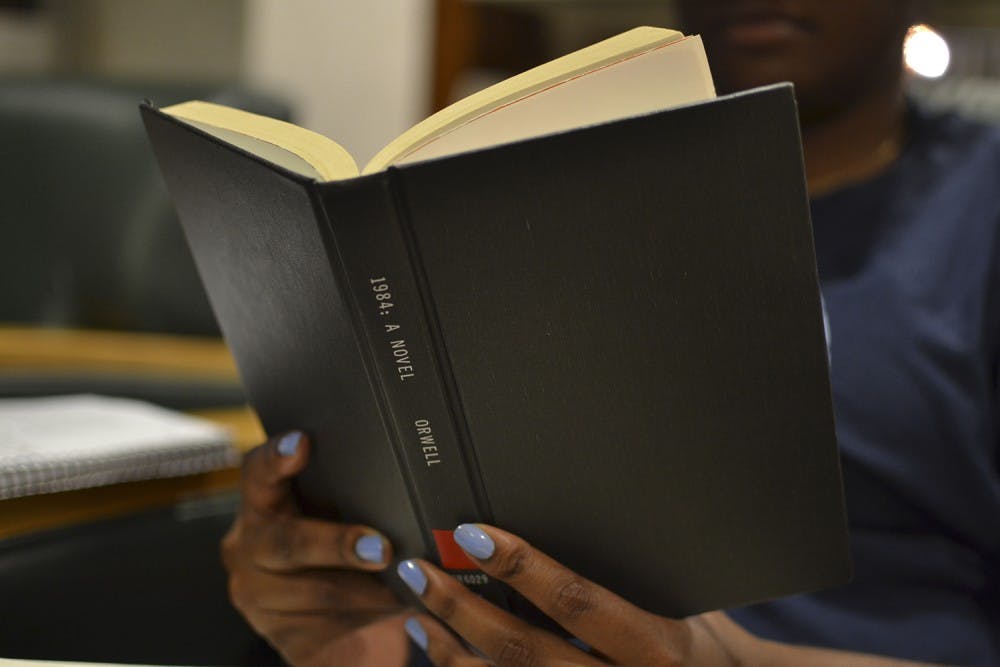Sales of “1984” first surged on Tuesday, when it jumped to number six on Amazon’s bestseller list. By Thursday, the book was completely sold out on the online retailer.
The book, originally published in 1949, tells the story of Winston Smith, a man struggling to overcome the oppression of a totalitarian regime in the fictional nation of Oceania.
Social media users began sharing quotes from Orwell’s novel last week after Kellyanne Conway, adviser to President Donald Trump, used the phrase “alternative facts” in an interview regarding the Trump administration’s statements on inauguration attendance.
The phrase drew heavy criticism, many people comparing “alternative facts” to the “1984” concepts of “Newspeak,” the language Oceania’s rulers implemented to restrict free speech, and “doublethink,” which Orwell defines as “holding two contrary beliefs in one’s mind simultaneously, and accepting both of them.”
UNC English lecturer Hilary Lithgow, who teaches Orwell’s essay, “Politics and the English Language,” in every class she teaches, said she believes there is a direct connection between alternative facts, the “fake news” crisis and a sudden widespread interest in Orwell.
“This worry that news and facts can be distorted sends us back to the drawing board in terms of who’s talked and worried about this in the past,” Lithgow said. “And Orwell has worried about it.”
Lithgow called Orwell’s novel a powerful indictment of problems with political language, adding that Orwell’s critiques don’t favor one party or belief system over another.
“No one can claim Orwell as being on their side,” she said.




